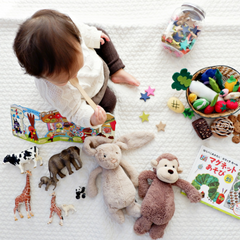
Activities for young children with autism
 Playtime is often where your child learns how to learn. Exploring new sights, smells, colours, shapes, and activities expands minds and is a fun part of growing up. Children with autism are more likely to enjoy a life of structure and routine. Structured play and activities help children with autism to engage with those around them. It creates calmness and stimulates their minds while allowing them to have loads of fun. Here are some activity suggestions that children with autism may enjoy. The age categories are there as a guide, but children older or younger may also find these activities enjoyable.
Playtime is often where your child learns how to learn. Exploring new sights, smells, colours, shapes, and activities expands minds and is a fun part of growing up. Children with autism are more likely to enjoy a life of structure and routine. Structured play and activities help children with autism to engage with those around them. It creates calmness and stimulates their minds while allowing them to have loads of fun. Here are some activity suggestions that children with autism may enjoy. The age categories are there as a guide, but children older or younger may also find these activities enjoyable.
0 - 4 years
Finger painting: A messy but fun classic. It can help children learn about colours and texture through touch. To add a fun twist, consider using ice paints. Children are fascinated watching the paint melt and swirl over the paper.
Box o’ beans: This game can help children with sensory issues surrounding texture and touch. To play, fill a large tub with beads or dried beans from the supermarket. Place small toys throughout and have the child put their hands into the beads to find the toys.
Blowing scented bubbles - Blowing bubbles is mesmerising and exciting for a lot of young children. It helps oral motor skill development, as well as joint attention. This is an important and often challenging skill for children with autism to learn.
Primary School
Underwater I spy bottle - Filling a bottle with sparkles and glitter is bound to attract the attention of curious minds. Not only are these bottles fun to make, they keep the fun going in times of need like long car journeys or rainy days. This activity requires you to fill a bottle with water, glitter, sequins, and anything small and shiny. Then add smaller objects for your child to find. What you put in is up to you. Small alphabet beads are good for helping your child practice their alphabet or small animal beads for those fascinated by creatures.
Dance party - There’s nothing quite like an impromptu dance party. Put on your child’s favourite music and let them do whatever feels natural. It is a great way for them to learn about rhythm, counting, and physical coordination.
Puppet show - Make sock puppets. Get creative and use anything you can find to come up with crazy characters. Pipe cleaners, buttons, fur or feathers are all great starting points. Then give your puppets a character that the children can act out. This is a fun way for children to learn about emotions and social skills as they interact and respond with the other puppets.
What is in my bag? - Have your child close their eyes and reach into a bag containing a simple object or toy. Let them feel around and try and guess what the item is. If your child is verbal let them describe it to you. If they are non-verbal let them draw a picture of it after they have finished feeling in the bag. Get creative with what you put in your bag. If it is too easy you can start to think outside of the box to step it up a gear. This will help children use senses other than vision to learn about the world around them.
These are only a few examples of activities for young children with autism. There are many more that can help your child learn and have fun. SpecialKids.Company wants your child to have fun growing up. Our wide range of clothing designs ensures they have the freedom to do this comfortably, in clothes they love. Why not see for yourself? You can browse our collection here.

